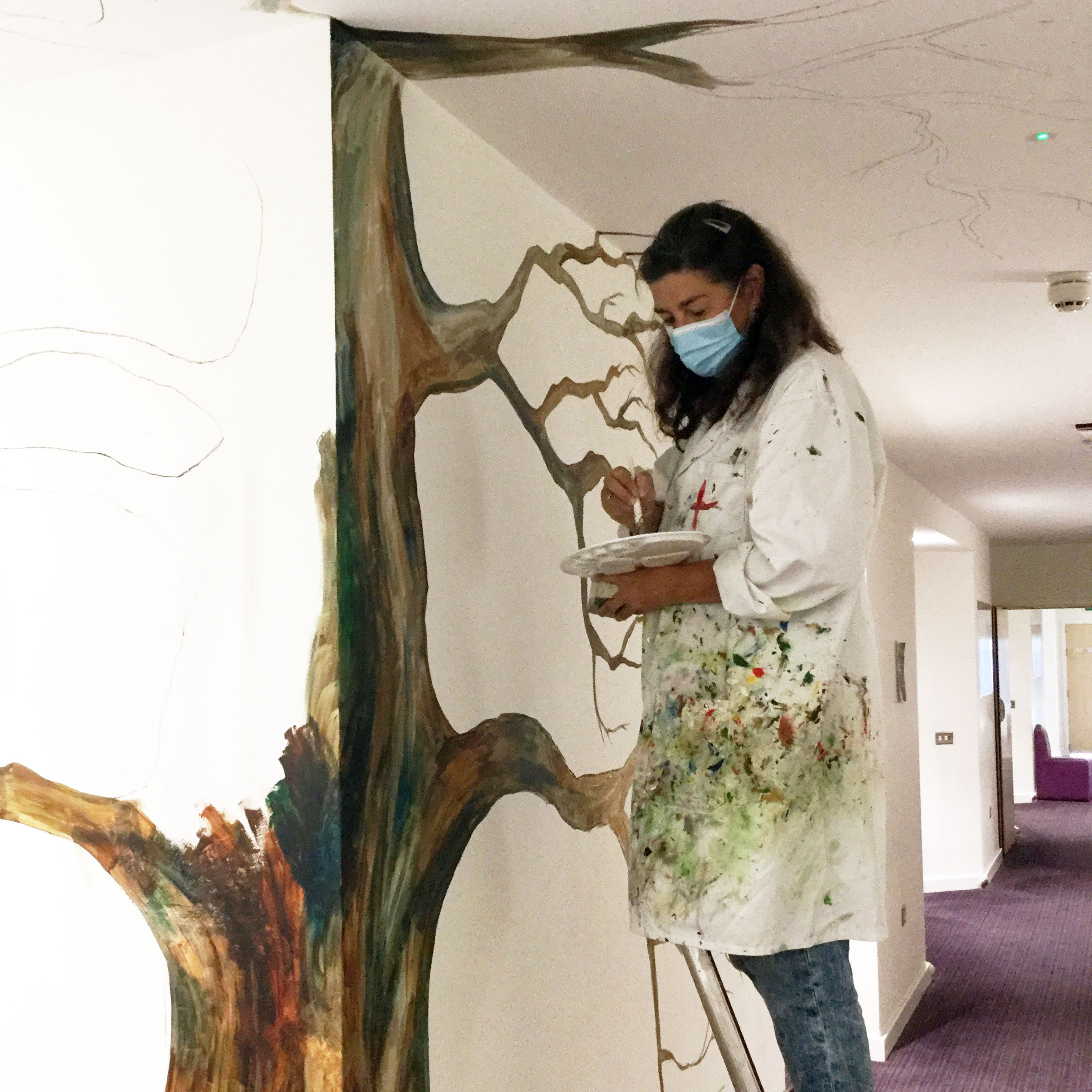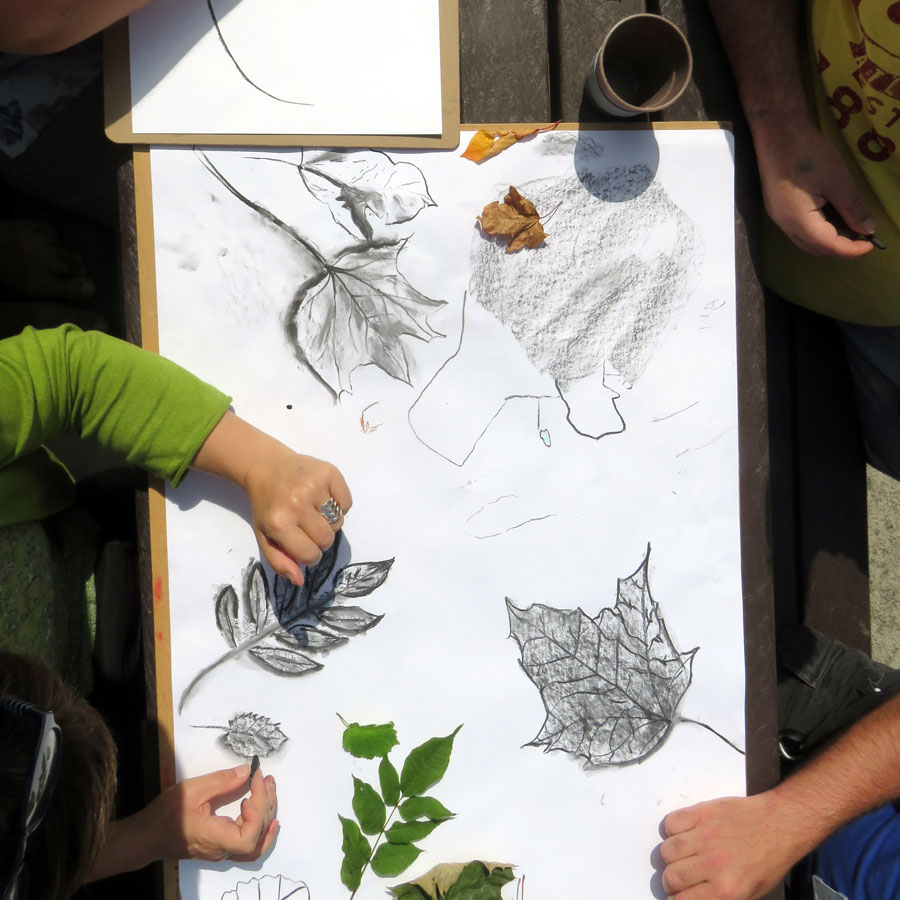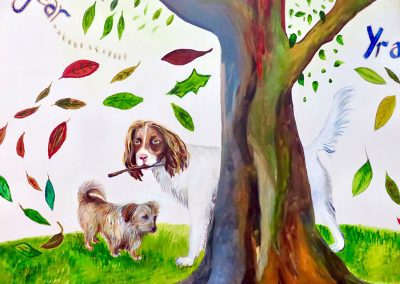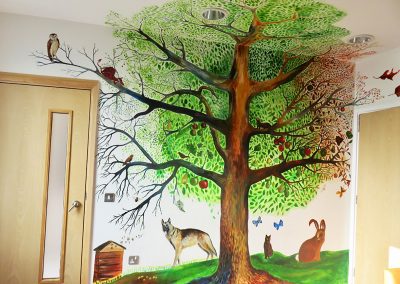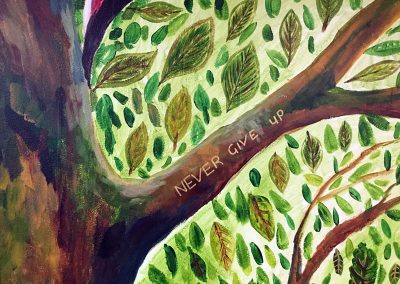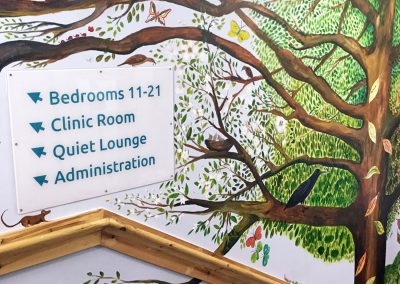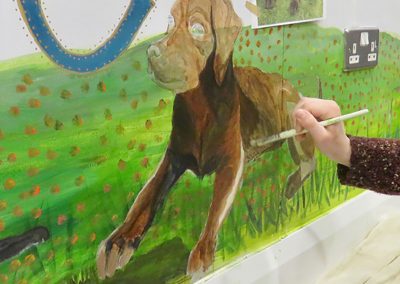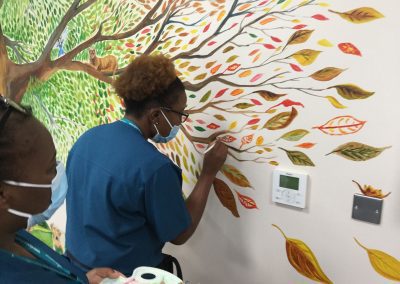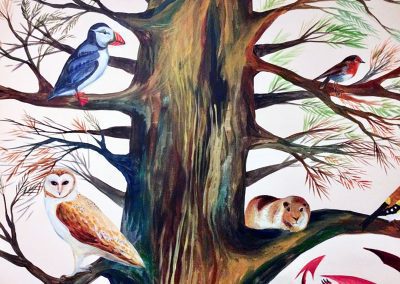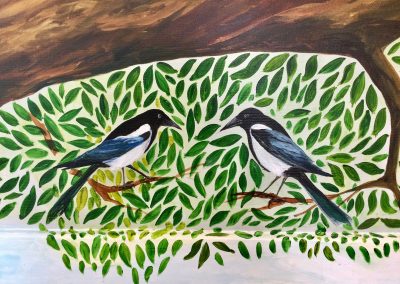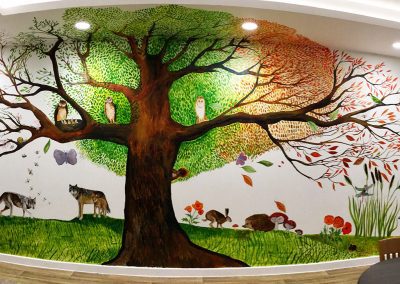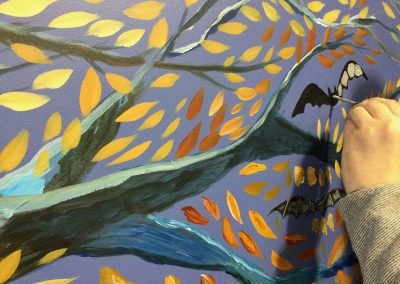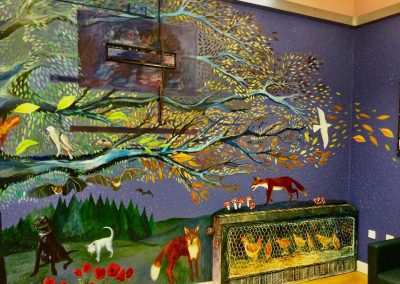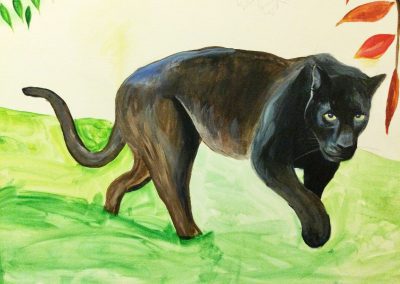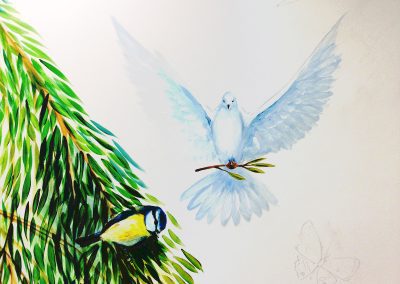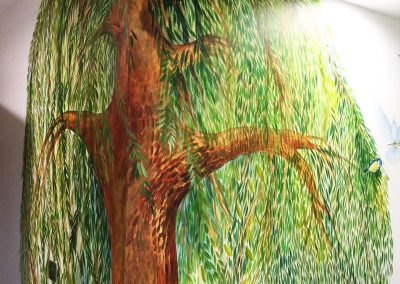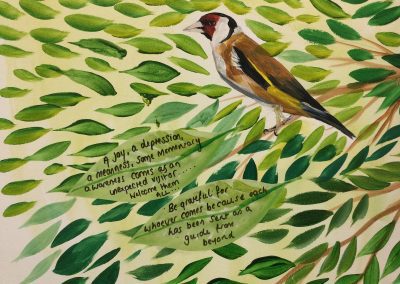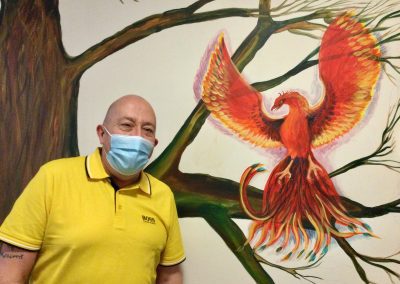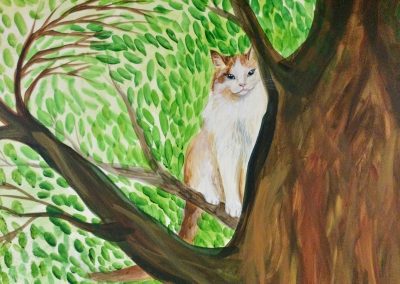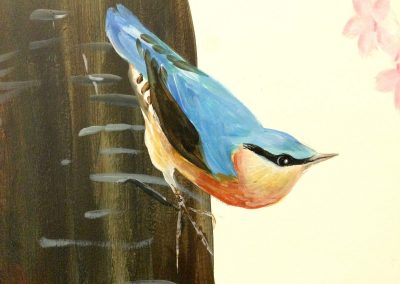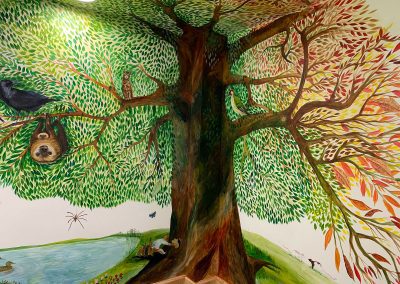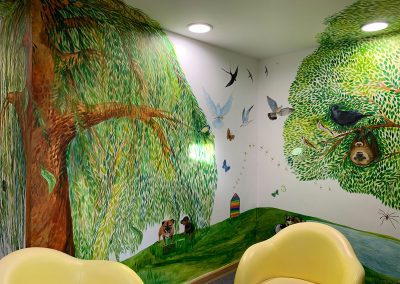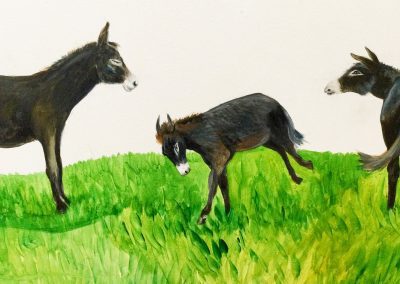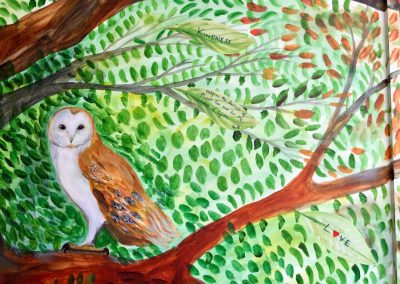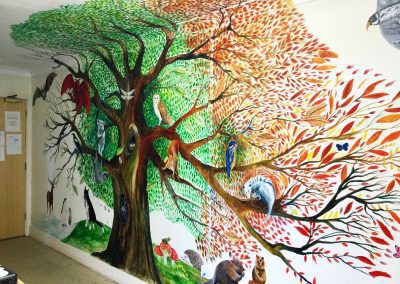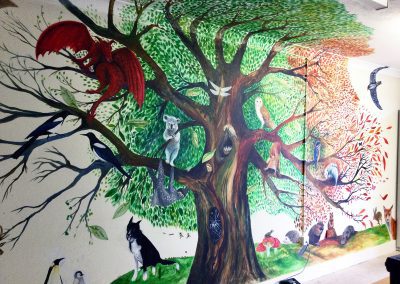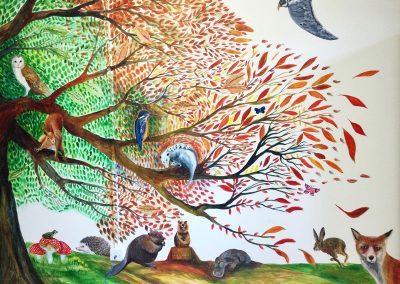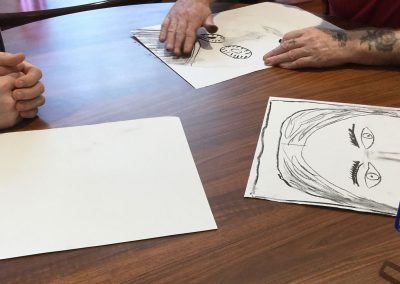ART DOCTOR
Maria has been contributing to the Arts in Health sector since 1987.
From 1987 – 1996 she worked with London Contemporary Dance Theatre’s Education Outreach Team in special schools throughout the UK, and first worked with young people in a hospital setting in 1990.
In 2015 Maria project managed and trained artists for Arteffact, an Arts Council of Wales (ACW) funded initiative that delivered five twelve-week art courses in four museums, archives and gallery venues across North Wales. The project was for people with mild to moderate mental health issues.
In 2019-20 Maria trained a cohort of artists to be Arts in Health facilitators for Celf O Gwmpas (ACW funded).
In 2019 Elysium Healthcare invited Maria to co-create Recovery Tree Murals in their secure hospitals throughout Wales and England. She has completed projects in a variety of settings from medium secure units to locked rehab for adults and in CAMHS (Children and Adolescents Mental Health Services) units. This work is ongoing.
In 2020 Hayes created a remote creative evaluation tool, The Wellbeing Measure. It had been in use throughout the UK with Arts in Health initiatives.
Dr Maria Hayes understands from her own practice that engagement in the creative process has a positive effect on health and well-being. Suffering chronic ill health since age 16 and trauma as a child she says:
Art and music saved my life – and it still does. I understand how engaging in the creative process has therapeutic effects. However, I work with Art with a capital A. It is not therapy, even though it is therapeutic at times. The complexity of engagement in a visual art language grows who I am and can be, and that process is both healing and revealing.
TESTIMONIALS
Some quotes from staff
“There was certainly participation from all patients, from relaxing and watching the painting develop, to choosing what they wanted to include, to directly being involved by drawing and painting. Several patients that are ward-based spent a significant amount of time observing and interacting.”
“Patients really enjoyed participating, and [it] appeared to challenge a lot of self-critical beliefs for some. For others it enabled them to embrace their creativity, which isn’t always possible in a ward environment.”

